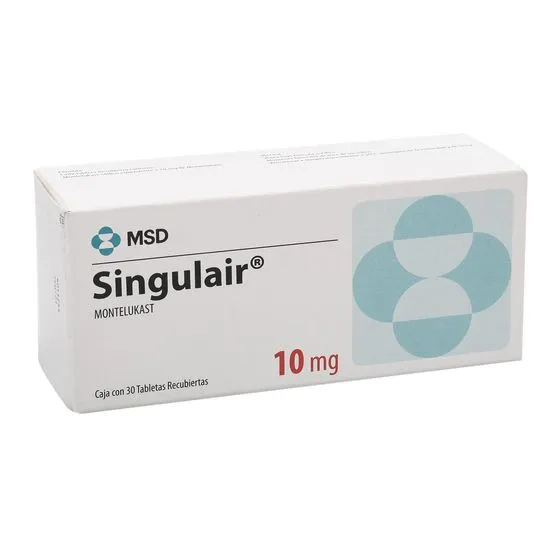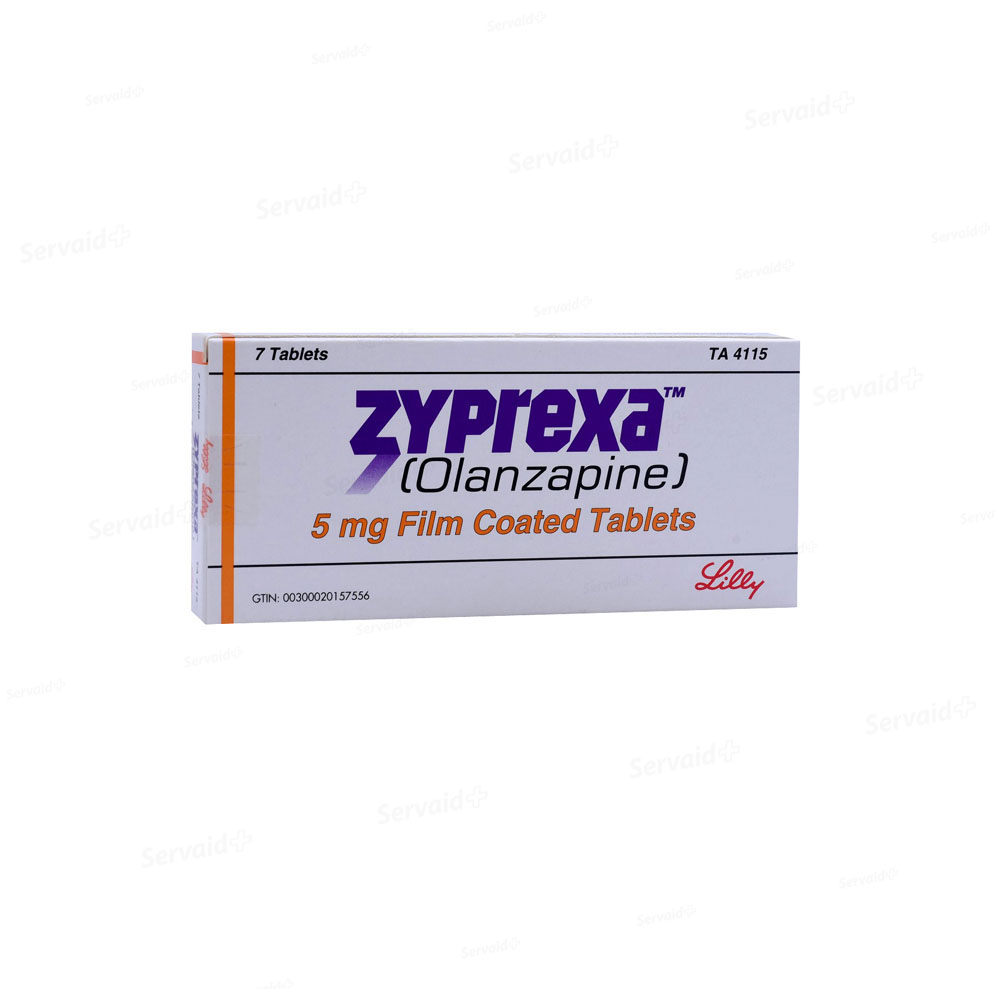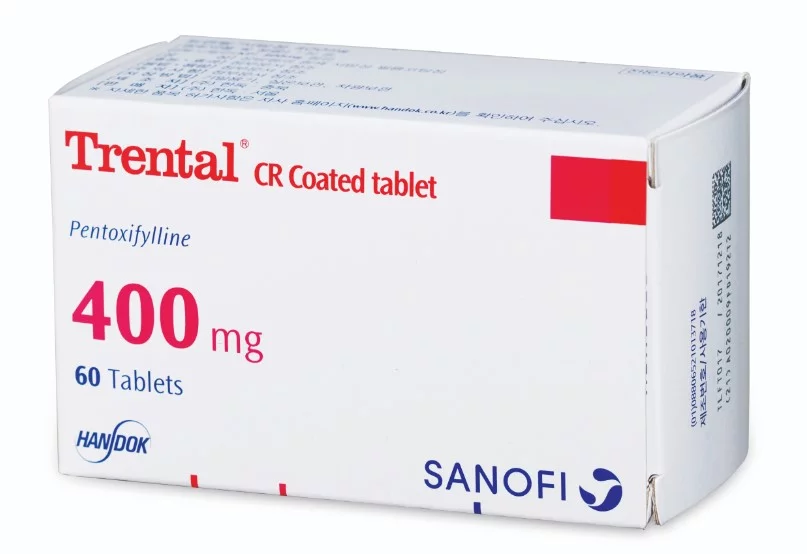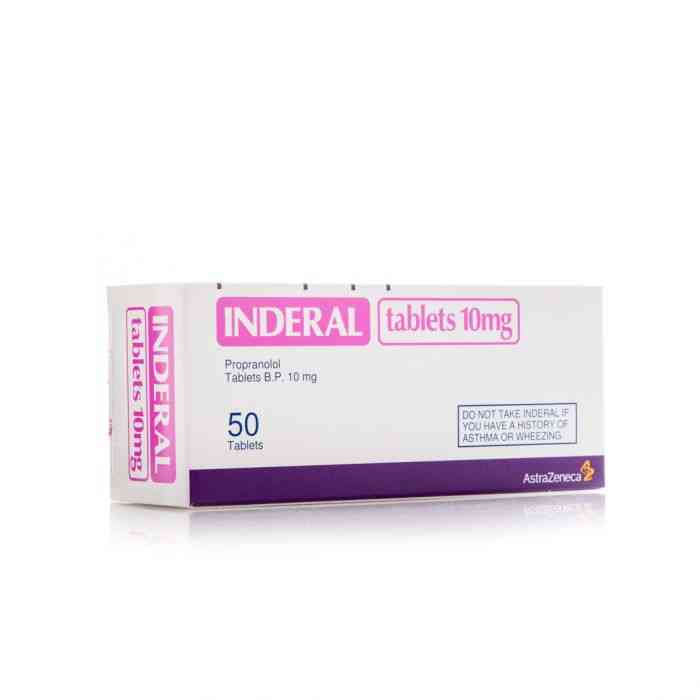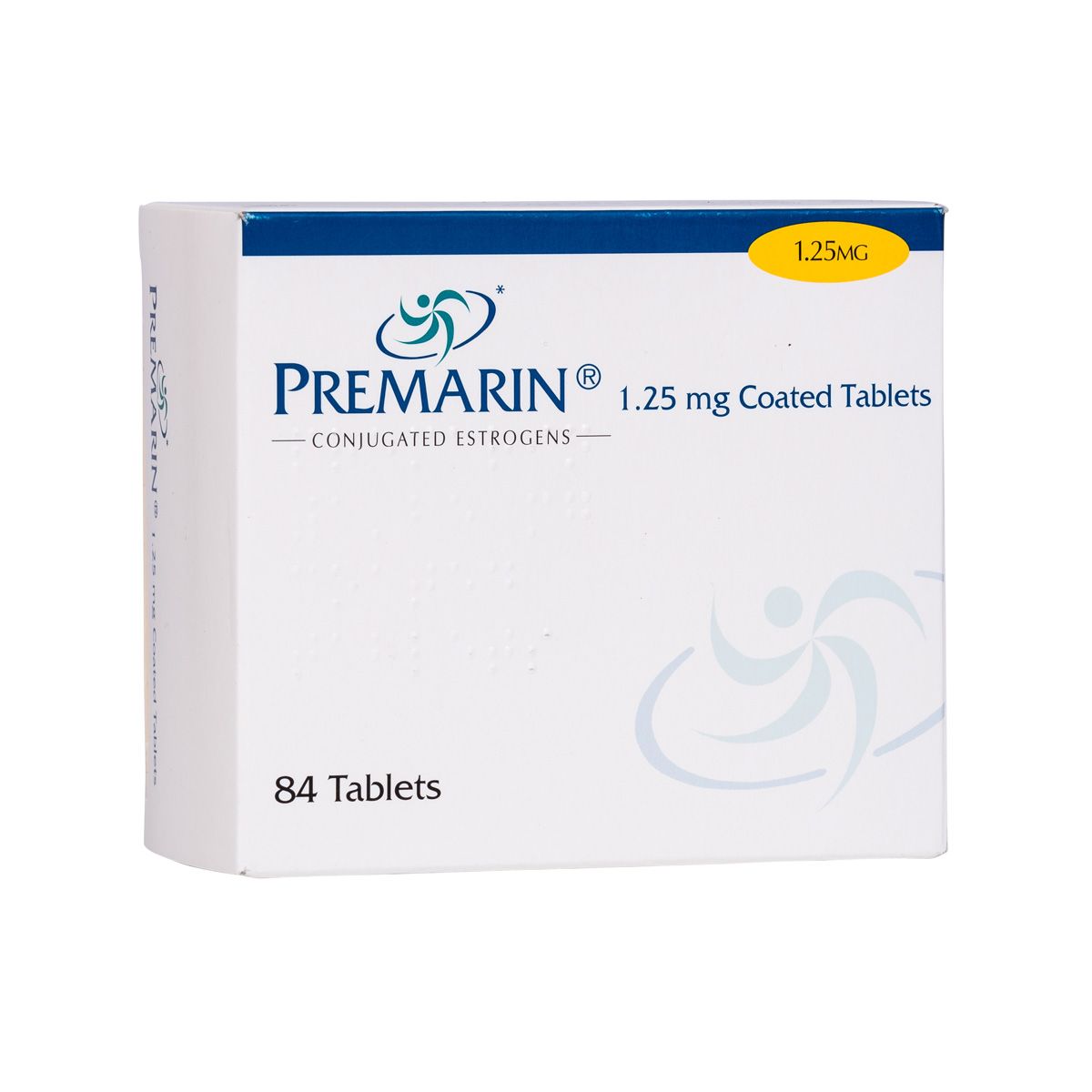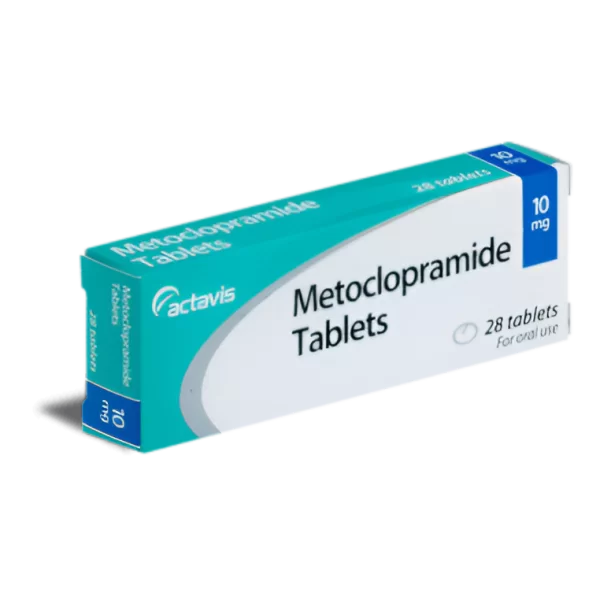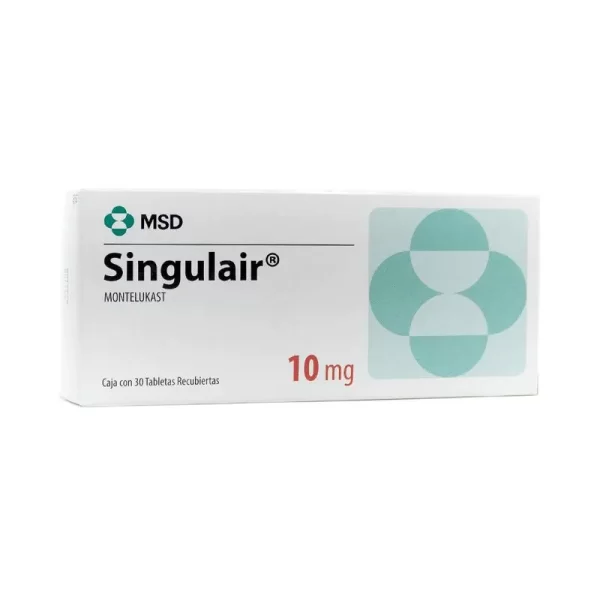
Singulair
Singulair - 10mg
| Product | Per Pill | Savings | Per Pack | Order |
|---|---|---|---|---|
| 30 pills | $3.36 | $100.68 | Buy Now | |
| 60 pills | $2.53 | $49.83 | $201.35 $151.52 | Buy Now |
| 90 pills | $2.25 | $99.67 | $302.03 $202.36 | Buy Now |
| 120 pills | $2.11 | $149.50 | $402.70 $253.20 | Buy Now |
| 180 pills | $1.97 | $249.17 | $604.05 $354.88 | Buy Now |
| 270 pills | $1.88 | $398.68 | $906.09 $507.41 | Buy Now |
Singulair - 5mg
| Product | Per Pill | Savings | Per Pack | Order |
|---|---|---|---|---|
| 30 pills | $2.37 | $71.04 | Buy Now | |
| 60 pills | $1.90 | $27.97 | $142.09 $114.12 | Buy Now |
| 90 pills | $1.75 | $55.95 | $213.14 $157.19 | Buy Now |
| 120 pills | $1.67 | $83.92 | $284.18 $200.26 | Buy Now |
| 180 pills | $1.59 | $139.87 | $426.27 $286.40 | Buy Now |
| 270 pills | $1.54 | $223.79 | $639.40 $415.61 | Buy Now |
Singulair - 4mg
| Product | Per Pill | Savings | Per Pack | Order |
|---|---|---|---|---|
| 30 pills | $1.39 | $41.68 | Buy Now | |
| 60 pills | $1.16 | $13.64 | $83.36 $69.72 | Buy Now |
| 90 pills | $1.09 | $27.28 | $125.04 $97.76 | Buy Now |
| 120 pills | $1.05 | $40.92 | $166.72 $125.80 | Buy Now |
| 180 pills | $1.01 | $68.21 | $250.09 $181.88 | Buy Now |
| 270 pills | $0.99 | $109.13 | $375.13 $266.00 | Buy Now |
| 360 pills | $0.97 | $150.05 | $500.17 $350.12 | Buy Now |
Overview
General Introduction Singulair (montelukast) is a leukotriene receptor antagonist used to manage asthma and allergic rhinitis. Approved by the FDA in 1998, it works by blocking leukotrienes, which are chemicals causing inflammation, bronchoconstriction, and mucus production. This helps reduce inflammation, ease breathing, and control allergy symptoms.
Key Benefits and Unique Properties
- Asthma Control: Helps prevent asthma attacks and improve lung function.
- Allergy Relief: Reduces symptoms of allergic rhinitis, such as sneezing and nasal congestion.
- Convenient Dosing: Taken once daily, improving patient adherence.
- Pediatric Use: Approved for children as young as 6 months for allergies and 12 months for asthma.
- Non-Sedating: Does not cause drowsiness, suitable for daytime use.
Effectiveness This medication is effective in managing asthma and allergic rhinitis. Clinical studies show significant reduction in asthma symptoms, decreased need for rescue inhalers, and fewer asthma attacks. For allergies, it reduces nasal symptoms and improves overall quality of life.
Safety and Tolerability Singulair is generally well-tolerated, with common side effects including headache, dizziness, abdominal pain, and cough. Rare but serious side effects can include mood changes and allergic reactions. Regular monitoring and communication with healthcare providers can help manage any adverse effects and ensure safe use.
Indications for Use
Diseases and Conditions Treated Singulair is indicated for the treatment and prevention of asthma and allergic rhinitis. For asthma, it is used to prevent symptoms such as wheezing, shortness of breath, and chest tightness. Singulair is also effective in treating seasonal allergic rhinitis (hay fever) and perennial allergic rhinitis, reducing symptoms like sneezing, runny nose, and nasal congestion. By blocking leukotrienes, it helps to control and prevent these conditions, improving overall respiratory function and quality of life.
Primary Symptoms and Indications
- Asthma Symptoms: Singulair is effective in preventing and reducing symptoms such as wheezing, shortness of breath, chest tightness, and nighttime awakenings due to asthma. It helps to improve lung function and reduce the frequency of asthma attacks.
- Allergy Symptoms: For allergic rhinitis, Singulair reduces symptoms like sneezing, runny nose, nasal congestion, and itching. It helps to improve nasal airflow and reduce the severity of allergic reactions. By managing these symptoms, Singulair enhances the quality of life for patients with asthma and allergies.
Dosage and Administration
Dosage and Intake The recommended dosage for adults and adolescents aged 15 years and older is 10 mg once daily in the evening. For children aged 6 to 14 years, the recommended dose is 5 mg once daily in the evening. For children aged 2 to 5 years, the recommended dose is 4 mg once daily in the evening, available as chewable tablets or oral granules. For children aged 6 to 23 months, the recommended dose is 4 mg oral granules once daily in the evening. The granules can be mixed with a spoonful of cold or room temperature soft food.
Timing and Frequency Singulair should be taken once daily in the evening, with or without food. The evening dosing helps to prevent nighttime asthma symptoms and provides round-the-clock control of allergic rhinitis symptoms. Consistent daily use is important for maintaining its therapeutic effects. Patients should follow their healthcare provider’s instructions on timing and frequency, ensuring they do not skip doses to maintain stable drug levels in the body.
Additional Recommendations It is important to maintain adequate hydration, especially during hot weather or physical activity. If a dose is missed, it should be taken as soon as remembered unless it is almost time for the next dose. Patients should not double the dose to make up for a missed one. Regular follow-ups with healthcare providers are recommended to monitor the effectiveness of the treatment and make any necessary adjustments to the dosage or administration schedule.
Mechanism of Action
Description of Mechanism Singulair works by blocking leukotriene receptors, specifically the cysteinyl leukotriene receptor type 1 (CysLT1). Leukotrienes are inflammatory mediators released by mast cells, eosinophils, and other immune cells in response to allergens and other triggers. By binding to CysLT1 receptors, leukotrienes cause bronchoconstriction, increased mucus production, and inflammation, leading to asthma and allergic rhinitis symptoms. Singulair inhibits these actions, reducing inflammation and bronchoconstriction.
Biochemical Processes By blocking leukotrienes from binding to their receptors, Singulair prevents the cascade of inflammatory responses that lead to asthma and allergy symptoms. This inhibition reduces the recruitment and activation of other inflammatory cells, such as eosinophils, in the airways and nasal passages. The decrease in inflammation results in reduced bronchoconstriction, improved airflow, and decreased mucus secretion. These biochemical processes help manage and prevent asthma and allergic rhinitis symptoms effectively.
Physiological Effects Singulair’s action on leukotriene receptors leads to significant improvements in lung function and symptom control. In asthma patients, it reduces bronchoconstriction, making breathing easier and preventing asthma attacks. For allergic rhinitis, Singulair decreases nasal congestion, runny nose, and sneezing, improving nasal airflow and overall respiratory function. These physiological effects contribute to better disease management and improved quality of life for patients with asthma and allergies.
Composition
Active Ingredients The active ingredient in Singulair is montelukast sodium, a leukotriene receptor antagonist. Montelukast sodium is a white to off-white powder that is freely soluble in ethanol, methanol, and water. Each Singulair tablet, chewable tablet, or oral granule packet contains a specific dose of montelukast sodium, which blocks leukotriene receptors to reduce inflammation, bronchoconstriction, and mucus production in asthma and allergic rhinitis patients.
Inactive Ingredients Singulair tablets contain inactive ingredients such as microcrystalline cellulose, lactose monohydrate, croscarmellose sodium, hydroxypropyl cellulose, magnesium stearate, hypromellose, titanium dioxide, and carnauba wax. Chewable tablets include mannitol, microcrystalline cellulose, hydroxypropyl cellulose, red ferric oxide, and artificial cherry flavor. Oral granules contain mannitol, hydroxypropyl cellulose, and magnesium stearate. These inactive ingredients help stabilize the formulation, ensure proper tablet formation, and enhance the overall effectiveness and palatability of the medication.
Side Effects
General Introduction Understanding potential side effects is crucial for safe use of Singulair. Patients should be aware of both common and serious side effects to monitor their health effectively while on the medication. Side effects can vary from mild to severe and may affect individuals differently.
Possible Side Effects
- Common Side Effects: Headache, dizziness, abdominal pain, and cough are commonly reported. Other mild side effects include fatigue, fever, and gastrointestinal disturbances such as nausea, diarrhea, and dyspepsia.
- Less Common Side Effects: Some patients may experience drowsiness, insomnia, or irritability. Skin reactions such as rash or eczema can also occur.
- Serious Side Effects: Rare but serious side effects include mood changes, such as agitation, aggression, depression, and suicidal thoughts. Allergic reactions, such as rash, swelling, and difficulty breathing, are also possible. Immediate medical attention is required if any serious side effects occur.
Frequency and Severity Common side effects are generally mild and transient, not usually interfering significantly with daily activities. Severe side effects are rare but require immediate medical attention and potentially discontinuation of the medication. Patients should communicate any side effects to their healthcare provider to manage and mitigate risks effectively.
Prevention of Side Effects
General Introduction Preventing side effects is key to maximizing the therapeutic benefits of Singulair. By following preventive measures, patients can reduce the likelihood of experiencing adverse reactions and maintain optimal control of their symptoms.
Tips for Prevention
- Follow Dosage Instructions: Use Singulair as directed to avoid excessive use, which can lead to adverse effects. Adhering to the prescribed dosage helps maintain effective symptom control while minimizing the risk of side effects.
- Stay Hydrated: Adequate hydration can help reduce the risk of dehydration and other side effects. Drinking plenty of fluids supports overall health and can alleviate mild gastrointestinal disturbances.
- Consult Healthcare Providers: Regular consultations with healthcare providers can help manage and prevent adverse reactions. Patients should inform their healthcare provider about any other medications or supplements they are taking to avoid potential interactions.
Contraindications
General Introduction Understanding contraindications ensures the safe use of Singulair. Certain conditions and diseases may preclude the use of this medication, and it is essential to identify these factors before starting treatment. Contraindications help prevent adverse reactions and ensure the medication's effectiveness.
Conditions and Diseases
- Allergic Reactions: Patients with a known hypersensitivity to montelukast or any excipients in Singulair should not use this medication. Allergic reactions can be severe and may include symptoms such as rash, itching, swelling, and difficulty breathing.
- Severe Hepatic Impairment: Singulair is metabolized in the liver, and patients with significant liver impairment should avoid using this medication. Liver dysfunction can affect the metabolism and excretion of the drug, leading to increased risk of side effects.
Warnings/Precautions
General Introduction Following precautions is essential to ensure the safe and effective use of Singulair. Patients should be informed about potential risks and how to mitigate them. Awareness of these precautions helps manage the treatment effectively and minimizes the likelihood of adverse reactions.
Important Warnings
- Mood Changes: Singulair has been associated with mood changes such as agitation, aggression, depression, and suicidal thoughts. Patients should be monitored for any behavioral changes, and immediate medical attention is required if these symptoms occur.
- Allergic Reactions: Although rare, severe allergic reactions can occur. Symptoms may include rash, swelling, and difficulty breathing. Patients should seek immediate medical help if they experience any signs of an allergic reaction.
Precautions
- Regular Monitoring: Regular check-ups with healthcare providers are essential to monitor the effectiveness of the treatment and manage any potential side effects. Blood tests may be required to check liver function in patients with hepatic impairment.
- Drug Interactions: Patients should inform their healthcare providers about all medications, including over-the-counter drugs and supplements, to prevent adverse interactions. Certain medications may affect the metabolism of Singulair, leading to increased or decreased effectiveness.
Missed Dose
General Introduction Proper management of missed doses helps maintain effective symptom control. Patients should be aware of how to handle missed doses to avoid disruptions in their treatment regimen. Consistency in medication intake is crucial for achieving the best therapeutic outcomes.
What to Do If a Dose Is Missed If a dose of Singulair is missed, it should be taken as soon as remembered, unless it is almost time for the next dose. In such cases, the missed dose should be skipped, and the patient should continue with the regular dosing schedule. It is important not to double the dose to make up for the missed one, as this can increase the risk of side effects. Adhering to the prescribed dosing schedule ensures consistent levels of the medication in the body, optimizing its effectiveness.
Tips for Adherence
- Reminders: Use alarms, medication organizers, or smartphone apps to help remember to take Singulair as prescribed. Setting daily reminders can help establish a routine and reduce the chances of missing a dose.
- Routine: Taking Singulair at the same time each day, preferably in the evening, helps develop a habit and ensures consistent medication intake. Integrating the medication into daily routines, such as brushing teeth or preparing for bed, can also aid in adherence.
Drug Interaction
General Introduction Understanding potential drug interactions helps in avoiding adverse effects and ensuring the effectiveness of Singulair. Patients should be aware of common interactions and how to manage them. Drug interactions can affect the metabolism, efficacy, and safety of the medication.
Examples of Interactions
- CYP450 Enzyme Inducers: Medications that induce the CYP450 enzymes, such as phenobarbital and rifampin, can reduce the effectiveness of Singulair by increasing its metabolism. Patients should inform their healthcare provider if they are taking these or similar medications.
- Other Leukotriene Modifiers: Concurrent use of other leukotriene modifiers, such as zileuton or zafirlukast, may increase the risk of side effects and should be avoided unless specifically directed by a healthcare provider.
- Nonsteroidal Anti-Inflammatory Drugs (NSAIDs): While not a direct interaction, NSAIDs can exacerbate asthma symptoms in some patients. Patients should discuss the use of NSAIDs with their healthcare provider to ensure safe co-administration.
How to Avoid Negative Interactions
- Medication Review: Regularly review all medications with healthcare providers to identify and manage potential interactions before they cause adverse effects. This includes prescription medications, over-the-counter drugs, and dietary supplements.
- Inform Healthcare Providers: Always inform healthcare providers of all medications being taken to ensure safe and effective use of Singulair. Open communication helps healthcare providers make informed decisions about potential drug interactions and adjust treatment plans accordingly.
Overdose
Symptoms of Overdose Overdosing on Singulair can lead to symptoms such as abdominal pain, drowsiness, thirst, headache, vomiting, and hyperactivity. These symptoms can vary in severity depending on the amount of medication ingested. Severe overdose can result in more serious symptoms such as convulsions, difficulty breathing, and loss of consciousness. Immediate medical attention is necessary if an overdose is suspected to prevent serious complications and ensure prompt treatment.
Actions to Take in Case of Overdose
- Immediate Measures: Seek emergency medical attention or call a poison control center immediately if an overdose is suspected. It is important to provide healthcare professionals with information about the amount of medication taken and the time of ingestion.
- First Aid: While waiting for medical help, provide supportive care to the affected individual. This includes maintaining an open airway, monitoring vital signs, and keeping the person comfortable. Do not induce vomiting unless instructed by a healthcare professional. In a medical setting, treatments may include gastric lavage, activated charcoal administration, and symptomatic management to address specific overdose symptoms.
Pharmacokinetics
Absorption Singulair is rapidly absorbed following oral administration, with peak plasma concentrations occurring within 3-4 hours. The oral bioavailability is approximately 64%, and it is not significantly affected by food intake. This allows for flexible dosing with or without meals. The medication's absorption characteristics contribute to its consistent and predictable therapeutic effects, making it suitable for daily management of asthma and allergic rhinitis.
Distribution The medication is extensively distributed throughout the body, with a volume of distribution of approximately 8-11 liters. It is highly bound to plasma proteins, primarily albumin, with a binding rate of over 99%. This extensive distribution and high protein binding help maintain stable drug levels in the bloodstream, ensuring effective symptom control. Singulair crosses the blood-brain barrier to a limited extent, which is relevant to its potential central nervous system effects.
Metabolism Singulair is extensively metabolized in the liver by cytochrome P450 enzymes, primarily CYP3A4, CYP2A6, and CYP2C9. It undergoes extensive first-pass metabolism, resulting in the formation of inactive metabolites. The metabolism of Singulair ensures that it is effectively cleared from the body, preventing accumulation and potential toxicity. The metabolic pathways are well-characterized, supporting its safe and effective use in a wide range of patients.
Elimination The medication and its metabolites are primarily excreted via bile into the feces, with less than 0.2% excreted unchanged in the urine. The elimination half-life is approximately 2.7 to 5.5 hours, supporting once-daily dosing. This elimination profile ensures consistent therapeutic effects and minimal risk of accumulation with daily use. The clearance of Singulair is not significantly affected by renal impairment, making it suitable for patients with varying degrees of kidney function.
Dosage Forms
Available Forms and Dosages Singulair is available in several dosage forms to accommodate different patient needs. These include 10 mg film-coated tablets for adults and adolescents aged 15 years and older, 5 mg chewable tablets for children aged 6 to 14 years, 4 mg chewable tablets for children aged 2 to 5 years, and 4 mg oral granules for children aged 6 months to 5 years. The availability of multiple forms and dosages ensures that patients of all ages can benefit from Singulair's therapeutic effects. Each dosage form is designed to provide the same efficacy and safety profile, making it easy for patients to adhere to their treatment regimen.
Advantages of Each Form
- Film-Coated Tablets: These are suitable for adults and adolescents, providing a convenient once-daily dosing option. The film coating helps mask the taste, making it easier to swallow.
- Chewable Tablets: These are designed for younger children who may have difficulty swallowing pills. They are flavored to make them more palatable, encouraging adherence.
- Oral Granules: These can be easily mixed with a spoonful of cold or room temperature soft food or directly into the mouth. This form is particularly useful for very young children who cannot chew tablets. The granules ensure precise dosing and are convenient for parents to administer.
Pregnancy and Breastfeeding
Safety of Use Singulair is classified as Pregnancy Category B. Animal studies have not shown any risk to the fetus, but there are no adequate and well-controlled studies in pregnant women. The medication should be used during pregnancy only if clearly needed and if the potential benefits justify the potential risks to the fetus. Healthcare providers should carefully evaluate the risks and benefits before prescribing Singulair to pregnant women.
Recommendations for Pregnant and Nursing Mothers
- Pregnancy: Use with caution during pregnancy, especially in the third trimester. Pregnant women should consult their healthcare provider before starting or continuing Singulair. Comprehensive risk-benefit analysis is essential to ensure the safety of both mother and child.
- Breastfeeding: It is not known whether montelukast is excreted in human milk. Due to the potential for serious adverse reactions in nursing infants, a decision should be made whether to discontinue nursing or discontinue the drug, taking into account the importance of the drug to the mother. Nursing mothers should consult their healthcare provider to weigh the benefits and risks.
- Consultation: Pregnant and nursing mothers should have regular consultations with their healthcare provider to monitor their condition and the health of their baby. Adjustments to the treatment plan may be necessary based on the mother’s and baby’s health status.
Storage Conditions
Storage Recommendations Singulair should be stored at room temperature between 20°C to 25°C (68°F to 77°F). The medication should be kept in its original container, tightly closed, and out of reach of children. Protecting the medication from light and moisture helps maintain its stability and effectiveness. These storage conditions ensure that the medication retains its potency throughout its shelf life, providing consistent therapeutic effects.
Temperature and Other Conditions
- Temperature: Avoid storing Singulair in extreme temperatures (above 30°C or below 15°C). High temperatures can degrade the active ingredient, while low temperatures can affect the tablet’s integrity.
- Moisture Protection: Keep the medication away from high humidity environments such as bathrooms. Exposure to moisture can cause the tablets to break down or lose potency.
- Shelf Life: Check the expiration date on the packaging and do not use the medication past this date. Proper adherence to storage guidelines ensures the medication remains effective throughout its shelf life. If the medication shows any signs of deterioration, such as changes in color or texture, it should be discarded.
Clinical Trials and Efficacy
Overview of Clinical Trials Singulair has been evaluated in numerous clinical trials to assess its efficacy and safety in treating asthma and allergic rhinitis. These studies typically involve large patient populations with various demographics and conditions. The trials are designed to measure improvements in symptoms, lung function, and overall quality of life. The results consistently demonstrate the medication’s ability to provide significant relief from asthma and allergy symptoms, supporting its use in clinical practice.
Key Findings and Conclusions
- Efficacy: Clinical trials consistently show that Singulair significantly reduces asthma symptoms, improves lung function, and decreases the need for rescue inhalers. For allergic rhinitis, it effectively reduces nasal symptoms and improves overall quality of life. These findings highlight the medication’s dual benefit in managing both asthma and allergies.
- Safety: The safety profile of Singulair is well-documented, with a low incidence of severe side effects when used as directed. Long-term studies confirm its tolerability and continued effectiveness over extended periods. Patients generally experience minimal side effects, making it a reliable and safe treatment option for chronic conditions.
- Comparison: Singulair’s efficacy is comparable to other leukotriene receptor antagonists and superior to placebo. It provides an alternative or adjunctive therapy for patients who cannot tolerate inhaled corticosteroids or need additional control of their symptoms. This makes it a valuable option in the management of chronic respiratory conditions.
Conclusion
Summary of Key Points Singulair (montelukast) is an effective and well-tolerated medication for managing asthma and allergic rhinitis. Its mechanism of action involves blocking leukotriene receptors, reducing inflammation, bronchoconstriction, and mucus production. Clinical trials have demonstrated its ability to provide significant relief from symptoms, improve lung function, and enhance overall quality of life. The medication is available in various forms and dosages, making it suitable for patients of all ages.
Primary Benefits and General Recommendations Singulair offers several advantages, including its once-daily dosing, non-sedating properties, and suitability for both children and adults. It is effective in preventing asthma attacks and controlling allergy symptoms. Patients and healthcare providers should consider Singulair for comprehensive management of asthma and allergic rhinitis. Regular monitoring and adherence to prescribed dosages enhance its safety and efficacy. For optimal results, patients should follow their healthcare provider’s instructions and maintain open communication about their treatment progress.
